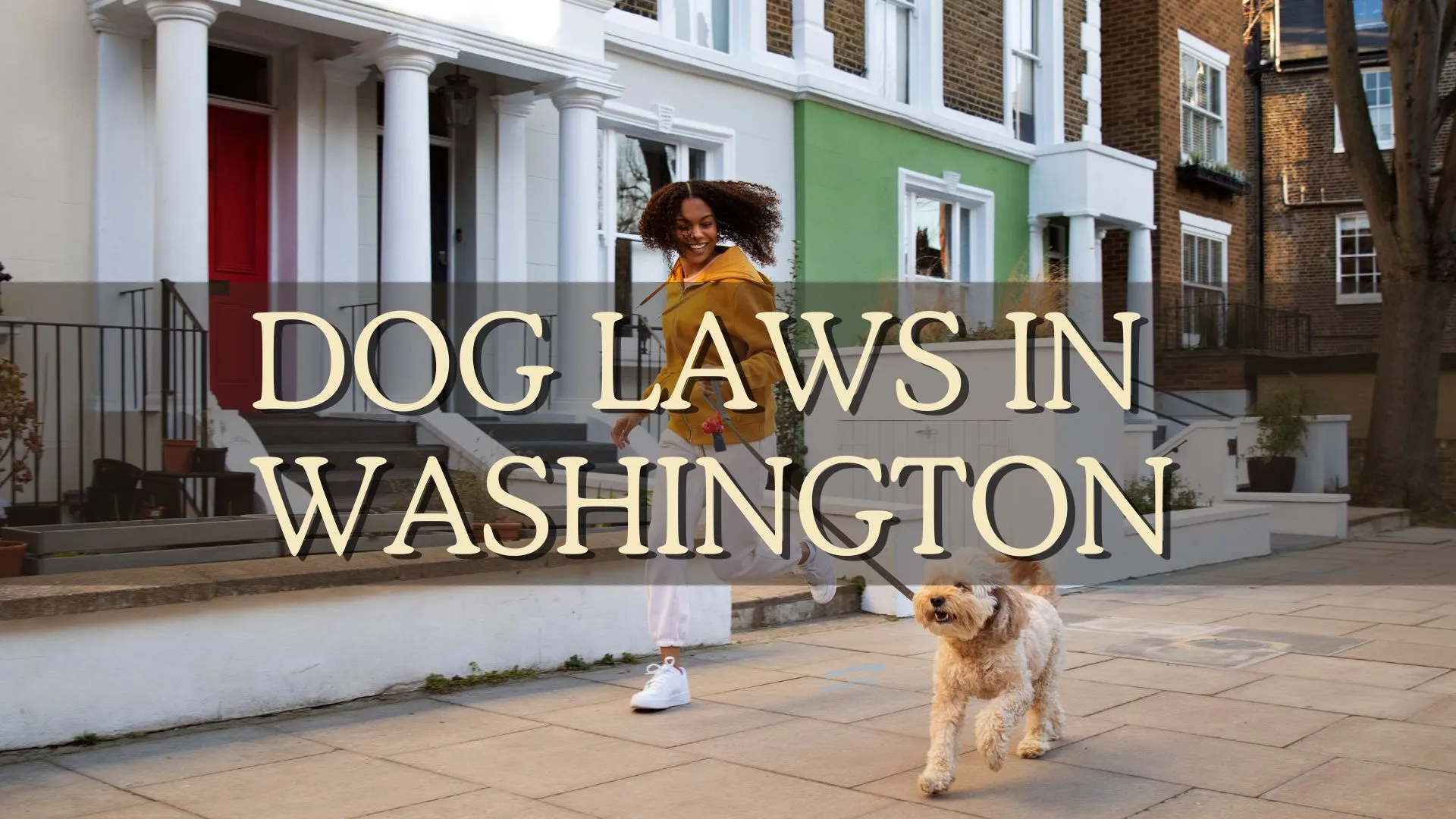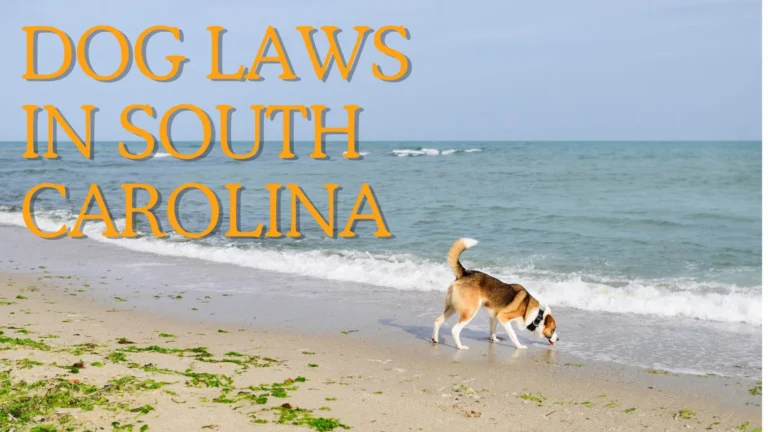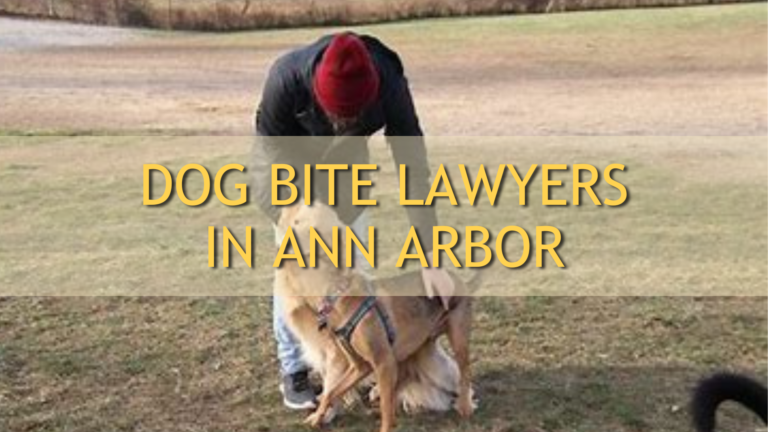Dog Laws in Washington
As a vet, I treat all sorts of furry friends, and let me tell you, some of the most common questions I hear come from worried dog owners. With over 85 million pooches padding around the US, it’s no surprise!
Understanding dog laws in Washington is like having a doggy-duty cheat sheet – it helps keep your pup safe, healthy, and out of legal trouble. These laws cover everything from licensing and leash requirements to bite liability and even what happens if your pup becomes a bit too enthusiastic when chasing squirrels. By knowing the legal landscape, you can ensure your walks are filled with wags, not citations!
Table of Contents
Dog Bite Laws in Washington
Every dog owner in Washington cherishes the wet-nosed greetings and tail-wagging walks with their furry companion. But what happens if that playful pup takes a nip that turns into a nasty bite? Understanding Washington’s dog bite laws can help navigate these situations and ensure both your dog’s safety and your legal standing.

Strict Liability in the Evergreen State
Washington operates under a strict liability system for dog bites. This means that the dog owner is held liable for any damages caused by a bite, regardless of the dog’s previous behavior or the owner’s knowledge of any aggressive tendencies. This simplifies the legal process for victims, who don’t need to prove negligence on the owner’s part. Here’s a breakdown of the key aspects of Washington’s dog bite laws:
- Who is Liable? The owner, or keeper, of the dog is responsible for any damages caused by a bite. “Keeper” refers to anyone who has control or custody of the dog at the time of the bite.
- Where Does the Bite Occur? The location of the bite doesn’t impact liability. This means the owner is liable if the bite happens in a public place, on private property (including the owner’s own home), or even if the victim is lawfully on the owner’s property (like a mail carrier).
- Victim’s Behavior: There are exceptions to strict liability. If the victim was trespassing on the owner’s property or deliberately provoking the dog, the owner might not be held fully liable. However, the burden of proof lies with the owner to demonstrate the victim’s provocation.
- Previous Bites: Washington’s law doesn’t require a dog to have a history of aggression for the owner to be liable.
Let’s illustrate this with an example: Sarah is walking in a public park when a dog breaks free from its leash and bites her arm, causing significant injury. In this scenario, Sarah can hold the dog owner liable for her medical expenses, lost wages due to missed work, and any pain and suffering caused by the bite, regardless of the dog’s past behavior.
What Damages Can be Recovered?
If you’ve been bitten by a dog in Washington, the law allows you to seek compensation for various damages, including:
- Medical Expenses: This covers all costs associated with treating the bite wound, including doctor visits, emergency room care, surgery, medication, and physical therapy.
- Lost Wages: If your injury prevents you from working, you can recover lost income during your recovery period.
- Pain and Suffering: This includes compensation for the physical and emotional pain caused by the bite.
- Property Damage: If your clothing or other belongings were damaged during the attack, you can seek compensation for their repair or replacement.
- Wrongful Death: In tragic cases where a dog bite results in death, the victim’s family might be eligible to file a wrongful death lawsuit.
It’s important to note: The amount of compensation you can recover will depend on the severity of the bite, the extent of your injuries, and other factors specific to your case.
Exceptions to Strict Liability
Although Washington operates under strict liability, there are a few exceptions where the dog owner might not be held fully responsible:
- Trespassing: If the victim was trespassing on private property when they were bitten, the owner’s liability might be reduced or even eliminated. However, the owner cannot intentionally set their dog on a trespasser.
- Provocation: If the victim deliberately provoked the dog by teasing, hitting, or cornering it, the owner’s liability might be reduced. However, the provocation must be significant enough to justify the dog’s aggressive response.
- Police K-9s: Washington law excludes bites from police dogs acting in the line of duty from strict liability.
The burden of proof in these exceptions lies with the dog owner. They need to demonstrate that the victim’s behavior significantly contributed to the dog’s aggression.
Dog Barking and Noise Laws in Washington
Living in Washington with your furry friend can be a dream come true. But sometimes, even the most adorable pup can become a bit of a barking Beethoven, leading to ruffled feathers (or fur) with your neighbors. Understanding Washington’s dog barking and noise laws is crucial for maintaining peace on the block and ensuring your canine companion stays on the good side of the law.

The Nuance of Dog Barking Laws
Washington, unlike some states, doesn’t have a statewide law specifically addressing dog barking. Regulations are primarily enforced at the city or county level. This means the specific decibel limits and enforcement procedures can vary depending on your location.
Here’s a breakdown of the key aspects to consider:
- City/County Ordinances: Most cities and counties in Washington have noise ordinances that include provisions for animal noise, including dog barking.
- Focus on Unreasonable Noise: These ordinances typically focus on unreasonable noise that disrupts the peace and quiet of the neighborhood. This means occasional barking is generally tolerated, but excessive or continuous barking can be considered a violation.
- Focus on Duration: Many ordinances define a violation based on the duration of the barking. Common thresholds include:
- Five or more minutes of continuous barking in a 15-minute period.
- 30 minutes or more of intermittent barking throughout the day or night.
Here’s a crucial caveat: The absence of a specific decibel limit doesn’ t mean noise level isn’t a factor. Animal control officers might use decibel meters as a reference point, but ultimately, they will consider the overall disruptiveness of the barking in the context of the neighborhood.
Let’s explore some real-world examples:
- Scenario 1: Your neighbor’s dog barks occasionally throughout the day, but it doesn’t last for extended periods. This likely wouldn’t be considered a violation.
- Scenario 2: Your neighbor’s dog barks for several hours every day when left alone. This scenario is more likely to be considered a violation, especially if it disrupts your sleep or enjoyment of your property.
Always check your local city or county ordinances to understand the specific regulations in your area. Most municipal websites provide the noise ordinance details, or you can contact your local animal control office for clarification.
Promoting Peace and Quiet with Your Pup
Understanding the legalities is important, but preventing excessive barking in the first place is ideal for maintaining good neighborly relations. Here are some tips to keep your pup’s vocalizations under control:
- Address Underlying Causes: Barking can be a sign of boredom, anxiety, separation anxiety, or a territorial response. Identifying the reason behind your dog’s barking is crucial for addressing the issue effectively.
- Provide Enrichment: Bored dogs often bark out of frustration. Ensure your dog gets enough exercise, mental stimulation, and playtime to keep them occupied and less likely to resort to barking.
- Desensitization Training: If your dog barks at triggers like noises outside, work on desensitization training to help them become less reactive.
- Positive Reinforcement: Reward your dog for quiet behavior to encourage calmness.
Remember: Consistency is key! Addressing the root cause of barking and implementing training techniques consistently can significantly reduce your dog’s vocal outbursts.
The Process of Reporting Excessive Dog Barking
If your neighbor’s dog’s barking becomes a persistent nuisance, here’s what you can do:
- Try a Friendly Approach: Talk to your neighbor directly and politely explain the issue. They might be unaware of the extent of the barking or might be open to working on solutions.
- Document the Problem: Keep a record of the barking incidents, including the date, time, and duration. This can be helpful if you need to file a formal complaint.
- Contact Animal Control: If a friendly approach doesn’t work, contact your local animal control office. They can investigate the situation and potentially issue a citation to the dog owner.
Dog Poop Disposal Laws in Washington
Being a dog owner in Washington is a joy – hiking in stunning national parks, exploring bustling cities, or simply enjoying backyard playtime. But with canine companionship comes responsibility, and a crucial part of that is responsible pet waste disposal. Leaving dog poop behind isn’t just gross; it’s a health hazard and can violate local laws.
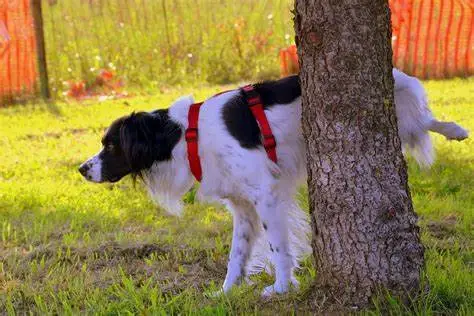
The Scoop on Washington’s Dog Poop Disposal Laws
Washington doesn’t have a single, statewide law regarding dog waste disposal. Enforcement primarily occurs at the city and county level. This means the specific regulations and penalties can vary depending on your location. Here’s a breakdown of the key aspects to consider:
- State Regulations: Washington does have a general law regarding public health nuisances caused by animals, including unsanitary waste disposal (WAC 246-203-130). This law empowers local authorities to establish ordinances for proper waste disposal.
- City and County Ordinances: Most cities and counties in Washington have ordinances mandating the proper disposal of dog waste. These ordinances typically require dog owners to:
- Pick up their dog’s waste immediately after elimination.
- Carry appropriate disposable bags for waste collection.
- Dispose of the waste in designated trash receptacles or at home.
- Not leave the waste on public or private property (unless on their own property and disposed of in a way that doesn’t create a nuisance).
Here’s a crucial note: Even if there’s no designated trash receptacle nearby, you’re still responsible for carrying the waste with you until you find a suitable disposal location.
Let’s explore some real-world examples:
- Scenario 1: You’re walking your dog in a park, and they poop. You must pick up the waste with a bag, carry it with you, and dispose of it in a designated trash receptacle when you find one.
- Scenario 2: You’re walking your dog on your own property. While you’re not required to pick up the waste immediately, you can’t leave it in a way that creates a public health nuisance (e.g., overflowing waste bin in your backyard near the property line).
Always check your local city or county ordinances to understand the specific regulations and potential fines for non-compliance in your area. Most municipal websites provide the ordinance details, or you can contact your local animal control office for clarification.
Responsible Poop Disposal
Following the law is essential, but being a responsible pet owner goes beyond legal requirements. Here are some tips for proper dog waste disposal that benefits everyone:
- Be Prepared: Always carry a sufficient number of biodegradable poop bags on walks.
- Double Bag It: This helps prevent leaks and unpleasant odors.
- Tie it Tight: Securely tie the bag closed to prevent spills and make it easier for sanitation workers.
- Dispose it Properly: Look for designated dog waste disposal stations in parks and public spaces. If none are available, carry the waste with you until you find a suitable trash receptacle.
- Compostable Bags? Think Twice: While these bags might seem eco-friendly, they often require specific composting facilities not readily available in most communities. Standard biodegradable bags are a safer option.
- Leave No Trace: Don’t bury dog waste in parks or on trails. This can contaminate water sources and harm local wildlife.
Remember: Responsible dog waste disposal protects public health, safeguards our environment, and promotes a more pleasant experience for everyone who shares our communities.
What Happens if You Don’t Pick Up After Your Dog?
Leaving dog waste behind can result in consequences, including:
- Fines: Cities and counties can impose fines for violating dog waste disposal ordinances. These fines can range from $25 to $250 or more for repeat offenders.
- Community Conflict: Leaving waste behind can create tension with neighbors and fellow dog owners. Responsible pet ownership fosters a more harmonious community.
Dog Licensing Laws in Washington
Owning a dog in Washington is a delightful experience. From exploring majestic mountains to strolling along scenic beaches, your furry friend can be the perfect companion for all your adventures. But with canine companionship comes responsibility, and a crucial part of that responsibility is ensuring your dog is properly licensed. A dog license isn’t just a piece of paper; it’s a vital link that connects you to your pet, promotes public safety, and supports vital animal welfare programs.
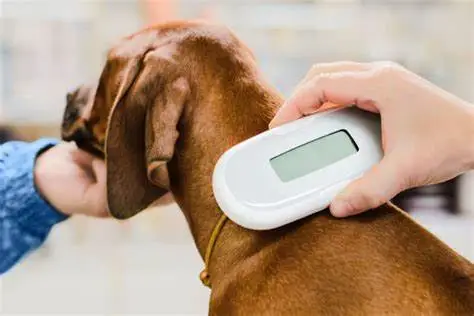
Washington’s Dog Licensing Laws
Washington operates under a mandatory dog licensing system. This means all dogs four months of age or older residing in the state must be licensed with their local jurisdiction. Here’s a breakdown of the key aspects of Washington’s dog licensing laws:
- Who Needs a License? All dogs four months of age or older residing in Washington must be licensed with their local jurisdiction (city, county, or regional animal control agency).
- Where to Get a License: Licenses are typically obtained from your local animal control office, city hall, or online through your local jurisdiction’s website.
- License Validity: Dog licenses are typically issued annually, although some jurisdictions might offer multi-year licenses.
- Fees: License fees vary depending on the location and whether your dog is spayed/neutered. Generally, fees are lower for sterilized dogs.
- Proof of Rabies Vaccination: Licensing often requires proof of current rabies vaccination.
Here’s a crucial note: Even if your dog primarily lives indoors, they still require a license as long as they reside in Washington for four months or more.
Let’s explore some real-world examples:
- Scenario 1: You recently adopted a six-month-old puppy in Seattle. You’ll need to obtain a license from the Seattle Animal Control department.
- Scenario 2: You live in a rural county in Washington with your unneutered adult dog. You’ll need to contact your county animal control office for licensing information and fees.
Always check with your local animal control office or municipal website to understand the specific licensing process, fees, and renewal procedures in your area.
The Benefits of Dog Licensing
Obtaining a dog license is not just about legal compliance; it offers a multitude of benefits for both your dog and your community:
- Identification: A dog license is a vital form of identification for your pet. It includes a tag with your contact information, which can significantly increase the chances of your dog being returned to you if they get lost.
- Rabies Protection: Licensing often requires proof of rabies vaccination, which helps protect your dog, other animals, and public health from this deadly disease.
- Funding for Animal Welfare Programs: Dog license fees are a crucial source of revenue for animal control agencies. This funding supports vital programs like animal sheltering, spay/neuter initiatives, and community education efforts.
- Peace of Mind: Knowing your dog is licensed and properly identified can provide peace of mind and a sense of responsibility.
Remember: Dog licensing is a win-win situation. It ensures your furry friend is safe and identified, promotes public health, and supports vital animal welfare programs in your community.
Obtaining a Dog License in Washington
Obtaining a dog license in Washington is a straightforward process. Here’s a step-by-step guide to get you started:
- Gather Information: Locate your local animal control office or municipal website. Here, you’ll find information about licensing procedures, fees, and accepted forms of payment.
- Proof of Rabies Vaccination: Ensure your dog’s rabies vaccination is current and obtain a copy of the vaccination certificate.
- Application Process: Most jurisdictions offer online applications for convenience. Alternatively, you can visit your local animal control office or city hall to obtain a paper application.
- Complete the Application: Fill out the application form with your information and your dog’s details (breed, age, sex, etc.).
Dog Leash Laws in Washington
Washington state boasts breathtaking landscapes, making it a haven for outdoor adventures with your furry friend. But venturing out with your canine companion requires responsible ownership, and leash laws play a crucial role in ensuring safety and harmony for everyone. Understanding Washington’s leash laws empowers you to enjoy leash-appropriate areas while keeping your dog safe and others comfortable.
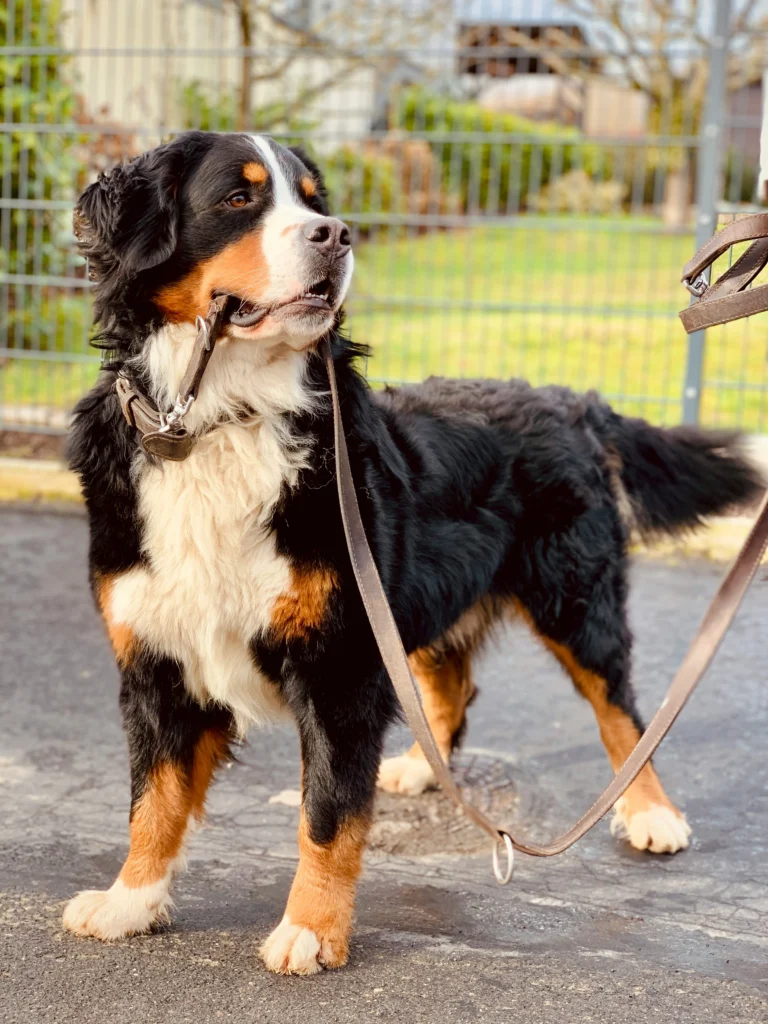
Washington’s Leash Laws
Washington, unlike some states with a single, statewide leash law, operates on a county and city-based system. This means specific leash regulations can vary depending on your location. Here’s a breakdown of the key aspects to consider:
- General Leash Requirement: Most cities and counties in Washington mandate that dogs be kept on a leash no longer than eight feet in public places. This ensures control and prevents your dog from approaching or interacting with others (human or animal) uninvitedly.
- Leash Exceptions: Some jurisdictions might have designated leash-free areas like dog parks where dogs can roam freely under owner supervision.
- Voice and Sight Control: Even in leash-free zones, some ordinances require voice and sight control, meaning you must be able to call your dog back and keep them within sight at all times.
Here’s a crucial note: The absence of a leash requirement in a specific area doesn’t mean your dog has free rein. Always ensure your dog is under your control, even in off-leash zones.
Let’s explore some real-world examples:
- Scenario 1: You live in Seattle, where leashing your dog is mandatory in all public areas except designated dog parks. You can enjoy unleashed playtime with your pup at the local dog park but ensure you can call them back and keep them within sight.
- Scenario 2: You’re visiting a rural county with no designated leash-free areas. Here, you’ll need to keep your dog on a leash whenever you’re outside your private property.
Always check with your local city or county animal control office or municipal website to understand the specific leash laws and designated leash-free areas in your jurisdiction. Some resources might even provide interactive maps highlighting leash requirements in different zones.
Responsible Leash Etiquette
Following leash laws is essential, but responsible dog ownership goes beyond legal compliance. Here are some tips for practicing good leash etiquette:
- Choose the Right Leash: Select a leash that’s sturdy and appropriate for your dog’s size and strength. A retractable leash can offer flexibility, but ensure you maintain control of the leash length.
- Maintain a Loose Leash: Avoid constantly pulling on the leash. Allow your dog some slack while keeping them close enough to prevent them from lunging or approaching others uninvitedly.
- Respect Other Walkers: Be mindful of others using the same path. Give them ample space and avoid letting your dog get tangled with other leashes.
- Clean Up After Your Dog: Always carry poop bags and dispose of your dog’s waste properly. Responsible waste management is crucial for maintaining a pleasant environment for everyone.
- Be Aware of Your Surroundings: Keep your eyes on your dog and be mindful of potential triggers like bikes, joggers, or other dogs. If your dog tends to be reactive, consider using a head halter or gentle leader for better control.
Remember: Responsible leash etiquette ensures the safety and comfort of everyone sharing public spaces.
Exploring Leash-Free Options
Washington offers numerous opportunities for leash-free fun with your furry friend. Here’s how to find and utilize designated dog parks responsibly:
- Finding a Dog Park: Many cities and counties have designated dog parks with fenced areas where dogs can roam freely. These locations are typically listed on municipal websites or through animal control resources.
- Park Rules and Etiquette: Before unleashing your dog, familiarize yourself with the specific rules of the dog park. These might include size restrictions for interacting dogs, vaccination requirements, and proper waste disposal procedures.
- Socialization is Key: Dog parks can be a great place for socialization, but ensure your dog is comfortable interacting with other canines before letting them loose. Observe their behavior and be prepared to intervene if any conflicts arise.
Dangerous Dog Laws in Washington
Washington, with its stunning landscapes and vibrant cities, is a wonderful place to share life with a furry companion. However, responsible dog ownership is paramount, especially when dealing with dogs exhibiting potentially dangerous behavior. Washington’s dangerous dog laws aim to protect public safety while ensuring due process for dog owners.

Washington’s Dangerous Dog Laws
Washington classifies dogs into two categories: potentially dangerous dogs and dangerous dogs. Here’s a breakdown of the key aspects:
- Potentially Dangerous Dog (PDD): This designation applies to dogs that meet any of the following criteria:
- Inflict an injury (without provocation) on a human or domestic animal on any property.
- Chase or approach someone in a menacing manner on streets, sidewalks, or public grounds.
- Have a known propensity or tendency to attack unprovoked, posing a threat to human or animal safety.
It’s crucial to note: A dog’s breed isn’t the sole factor in determining its dangerousness. Behavior and past incidents play a significant role.
- Dangerous Dog: This designation is reserved for dogs that have caused severe injury (without provocation) to a human being while off their owner’s property, or have been previously classified as PDD and again bitten, attacked, or endangered the safety of humans.
Severe Injury: Washington law defines “severe injury” as any physical injury that results in broken bones or disfiguring lacerations requiring multiple sutures or cosmetic surgery.
Here’s a crucial distinction: A dog doesn’t need to inflict a severe injury to be classified as potentially dangerous. However, a severe injury without provocation is required for a “dangerous dog” designation.
How Dogs Become Classified as Dangerous
The process of declaring a dog dangerous can be initiated by various parties:
- Animal Control Officer: If an animal control officer observes or receives a report of a dog exhibiting potentially dangerous behavior, they can launch an investigation. This might involve interviewing witnesses, gathering evidence, and potentially evaluating the dog’s temperament by a qualified professional.
- Medical Professional: If a doctor treats a victim of a dog bite, they might be required by law to report the incident to animal control, potentially triggering an investigation.
- Private Citizen: While less common, a private citizen who feels threatened by a dog’s behavior can file a complaint with animal control, leading to a potential investigation.
The Investigation: Animal control will conduct a thorough investigation to determine whether the dog meets the criteria for a PDD or dangerous dog designation. This might involve witness statements, medical records, and potentially a behavioral evaluation by a qualified professional.
Due Process for Owners: Dog owners have the right to a hearing to contest the proposed dangerous dog designation. An impartial hearing officer will consider evidence presented by animal control and the owner before making a final decision.
Remember: This is a complex legal process. If you’re facing a situation where your dog is being investigated for potentially dangerous behavior, it’s highly advisable to consult with an attorney specializing in animal law.
Owner Responsibilities and Legal Consequences
If your dog is classified as PDD or dangerous, Washington law imposes specific owner responsibilities and potential legal consequences:
Owner Responsibilities:
- Registration: You must register your dog with the local animal control authority.
- Muzzling and Leashing: Whenever your dog is outside a secure enclosure, it must be muzzled and restrained by a substantial chain or leash under the physical control of a responsible person.
- Secure Enclosure: When on your property, your dog must be securely confined indoors or in a properly secured and locked pen designed to prevent escape and entry of young children.
- Liability: Even with these precautions, owners of dangerous dogs remain strictly liable for any injuries or damages caused by their dog.
Potential Legal Consequences:
- Fines: Failure to comply with regulations for PDD or dangerous dogs can result in fines.
- Confiscation and Euthanasia: In severe cases, especially with repeat offenses or a dangerous dog attack resulting in severe injury, a court might order the dog’s confiscation and potential euthanasia.
Dog Health and Welfare Laws in Washington
Washington state boasts a vibrant pet-loving community, and ensuring the health and well-being of our canine companions is a top priority. Several laws and regulations in Washington work in tandem to promote responsible pet ownership and safeguard dog welfare. Understanding these legalities empowers you to provide your furry friend with the love, care, and environment they deserve.
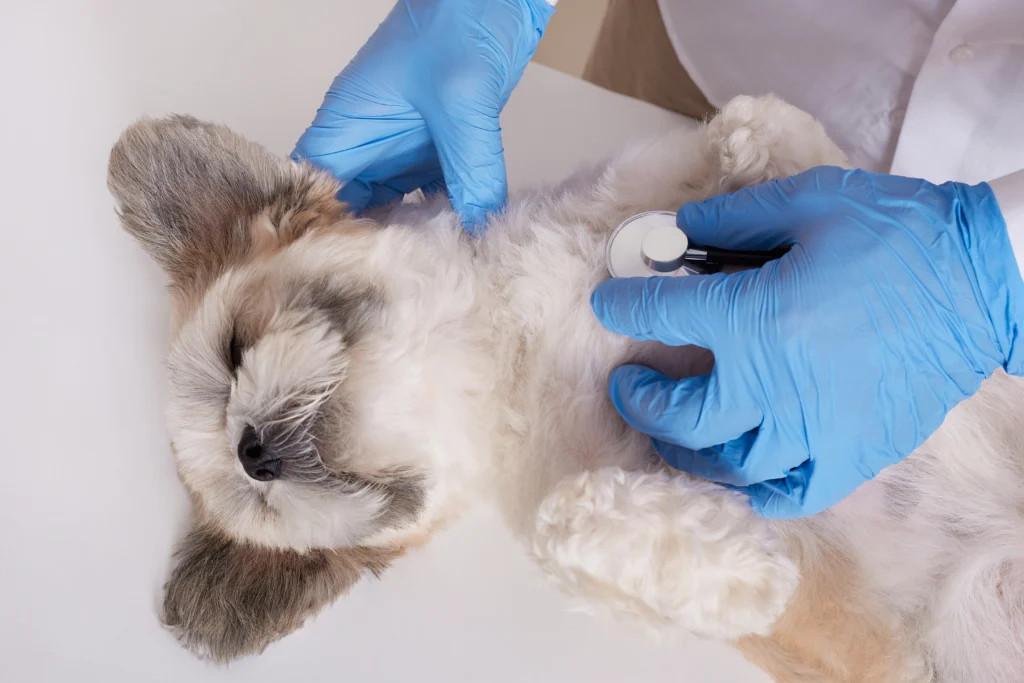
Animal Cruelty Laws
Washington, like most states, has animal cruelty laws that serve as the foundation for protecting dog welfare. These laws focus on preventing intentional infliction of pain or suffering on animals. Here’s a breakdown of the key aspects:
- General Prohibition: Washington Revised Code Chapter 16.52 (RCW) prohibits inflicting unnecessary suffering or pain upon any animal. This includes intentionally inflicting substantial pain, causing physical injury, or killing an animal by cruel means.
- Knowingly vs. Recklessly: The law differentiates between intentional cruelty and reckless disregard for an animal’s well-being. Intentional cruelty carries harsher penalties.
- Veterinary Care: While not explicitly stated, failing to provide necessary veterinary care in situations where the animal’s health is at risk can be considered animal cruelty.
It’s crucial to note: These are general cruelty statutes. Washington also has specific laws addressing dog welfare beyond intentional cruelty.
Specific Laws Promoting Dog Well-being
While general animal cruelty laws form the foundation, Washington has additional regulations specific to dog health and welfare:
- Tethering: Washington restricts tethering practices to ensure dogs have adequate access to food, water, shelter, and space for movement.
- Time Limits: Dogs cannot be tethered for more than a total of six hours in a 24-hour period.
- Leash Length: Tethers must be a minimum of six feet long and allow the dog to turn around comfortably.
- Supervision: Tethered dogs must be under the owner’s direct supervision, with frequent checks on their well-being.
- Weather Conditions: Tethering is prohibited during extreme weather conditions (excessive heat or cold) where the dog cannot access adequate shelter.
- Food, Water, and Shelter: Washington law mandates that all dog owners provide their animals with:
- Fresh, clean water accessible at all times.
- Adequate food to maintain a healthy weight and meet their nutritional needs.
- Shelter appropriate for the weather conditions, protecting them from the elements (sun, rain, wind, extreme temperatures). This could include a properly insulated doghouse or access to a climate-controlled portion of the owner’s dwelling.
- Veterinary Care: While not mandated by law, ensuring your dog receives necessary veterinary care for illness or injury is a crucial aspect of responsible pet ownership. Regular veterinary checkups are also essential for preventive care and early detection of potential health issues.
Here’s a crucial distinction: These laws establish minimum standards. Providing your dog with a higher quality of life, including enrichment activities, exercise opportunities, and comfortable living space goes beyond legal requirements and reflects responsible pet ownership.
The Role of Animal Control
Washington’s animal control agencies play a vital role in enforcing dog health and welfare laws. Here’s how the system works:
- Reporting Concerns: Anyone who suspects a dog is being neglected or abused can file a report with their local animal control agency.
- Investigations: Animal control officers will investigate reported cases. This might involve visiting the property, interviewing the owner, and potentially examining the dog’s living conditions and general health.
- Enforcement Actions: If violations are found, animal control can take various actions, including issuing citations, requiring corrective actions (e.g., providing adequate food or shelter), or even seizing the animal if its safety is at immediate risk.
- Humane Societies and Shelters: Humane societies and animal shelters often collaborate with animal control to investigate neglect cases and provide temporary or permanent care for rescued animals.
Dog Public Access Laws in Washington
Washington, with its stunning natural beauty and vibrant urban centers, is a haven for outdoor enthusiasts – and their furry companions. But navigating public spaces with your dog requires understanding the legalities surrounding dog access. Washington’s public access laws for dogs can vary depending on location and type of establishment, so being informed empowers you to plan dog-friendly adventures while respecting business policies and public safety.
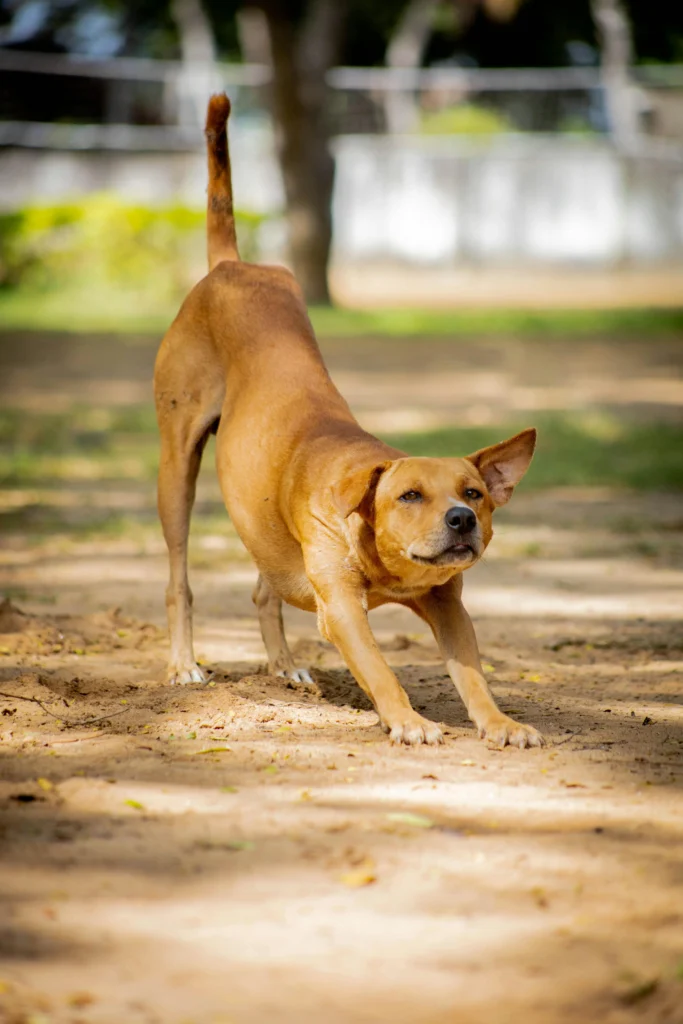
General Dog Public Access Laws
Washington doesn’t have a single, statewide law governing dog access to public spaces. Public access rights are determined by a combination of factors:
- State Regulations: Washington has some general regulations regarding service animals (discussed later). However, public access for pet dogs is primarily determined at the city and county level.
- Local Ordinances: Cities and counties can establish ordinances outlining dog access policies in public spaces like parks, trails, beaches, and public buildings.
- Private Businesses: Private businesses have the right to determine their own pet policies, which might allow well-behaved dogs on leashes, restrict dog access altogether, or designate specific dog-friendly areas.
Here’s a crucial note: The absence of a “no dogs allowed” sign doesn’t automatically grant access. Always check with the establishment or consult local ordinances to understand their dog access policies.
Exploring Dog-Friendly Public Spaces
Washington offers numerous opportunities for outdoor adventures with your dog. Here’s a breakdown of dog access in some common public spaces:
- Parks: Many Washington cities and counties have designated dog parks where dogs can roam freely under owner supervision. Always check park rules for leash requirements in specific zones, size restrictions for interacting dogs, and proper waste disposal procedures.
- Trails: Some trails in Washington allow dogs on leash, while others might be restricted due to sensitive wildlife habitats or public safety concerns. Research trail regulations before heading out and be prepared to leash your dog and follow any posted signage.
- Beaches: Beach access for dogs can vary depending on the location. Some beaches might allow leashed dogs year-round, while others might have seasonal restrictions or designated off-leash zones. Always check local regulations and be mindful of leash requirements and cleaning up after your dog.
Beyond Parks and Trails: Dog Access in Businesses and Public Buildings
Washington’s public access laws extend beyond outdoor spaces. Here’s what you need to know about dog access in different establishments:
- Restaurants and Retail Stores: Private businesses can determine their own pet policies. Some might welcome well-behaved, leashed dogs, while others might restrict pet access altogether. Look for signage indicating pet policies or inquire with staff before entering.
- Government Buildings: Access for pet dogs in government buildings is typically restricted, with exceptions for service animals. However, specific policies can vary, so it’s best to check with the building’s administration beforehand.
Always remember: Respect the policies of private businesses and public buildings. If your dog isn’t allowed, don’t try to bring them inside. There are plenty of dog-friendly establishments waiting to be explored.
Service Animals vs. Pet Dogs
It’s important to distinguish between service animals and pet dogs in the context of public access:
- Service Animals: Under federal law (Americans with Disabilities Act – ADA), service animals (dogs or miniature horses) trained to assist people with disabilities are guaranteed access to all public spaces (except for areas where hygiene is a concern, like public pools). Service animals must be well-behaved and harnessed or leashed.
- Pet Dogs: Public access for pet dogs is determined by local ordinances and private business policies. While some businesses might welcome well-behaved pet dogs, they aren’t guaranteed access under the ADA.
Dog Travel and Transportation Laws in Washington
Washington, with its breathtaking scenery and diverse landscapes, is a popular destination for both residents and tourists. And who wouldn’t want their furry best friend by their side for the adventure? But before you hit the road or board a ferry with your canine companion, understanding Washington’s dog travel and transportation laws is crucial. This comprehensive guide equips you with the knowledge to ensure safe and legal travel with your dog in Washington.
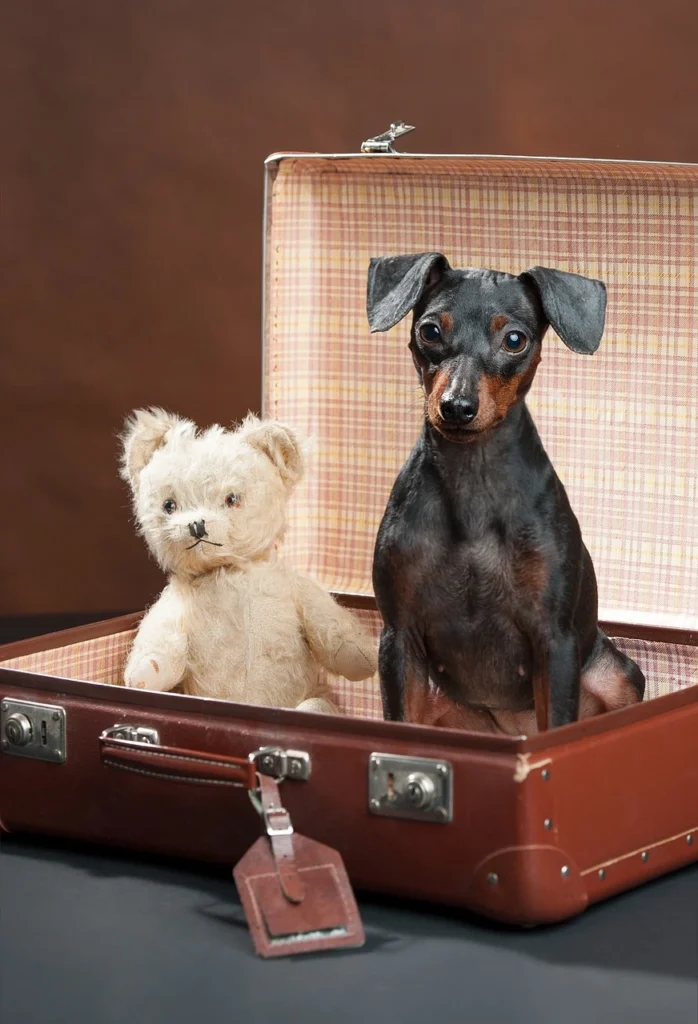
Essential Considerations for Dog Travel
Traveling with your dog in Washington requires preparation and awareness of various regulations:
- Destination Research: If traveling beyond Washington, research dog travel regulations for your destination state or country. Vaccine requirements and quarantine procedures can vary.
- Health Considerations: Ensure your dog is up-to-date on all vaccinations recommended by your veterinarian. Some travel destinations might have specific vaccination requirements.
- Identification: Always have your dog’s identification tag with current contact information attached to their collar. Consider microchipping your dog for additional security.
- Leash and Travel Crate: Pack a leash for walks and a comfortable, well-ventilated travel crate that meets airline or transportation provider requirements (if applicable).
Here’s a crucial note: While this guide focuses on Washington regulations, planning for travel beyond state lines requires additional research on specific destination requirements.
Traveling by Car
Hitting the road with your dog in Washington requires following safety precautions and considering potential legal requirements:
- Secure Your Dog: Never allow your dog to roam freely in the car. Use a properly secured crate, harness, or pet seat belt to prevent them from becoming projectiles in case of an accident.
- Rest Stops and Comfort Breaks: Plan for frequent rest stops to allow your dog to relieve themselves, stretch their legs, and stay hydrated. Avoid leaving your dog unattended in a hot car, even for short periods.
- Leash Laws: Remember, leash laws apply even when traveling by car. If you stop at a park or rest area, ensure your dog is leashed and under your control.
Washington doesn’t have specific laws regarding dog transport in private vehicles. However, ensuring your dog’s safety and preventing distractions while driving are paramount.
Taking to the Skies
Air travel with your dog requires planning and adherence to airline regulations:
- Airline Research: Each airline has its own pet policies regarding weight restrictions, breed restrictions, in-cabin vs. cargo transport, and associated fees. Research the specific airline’s pet policies well in advance of your flight.
- Health Certificate: Most airlines require a health certificate from your veterinarian, issued within a specific timeframe (usually 10 days) before your flight, certifying your dog’s health and current vaccinations.
- Travel Crate: Your dog will likely need to travel in a crate that meets airline specifications for size, ventilation, and security. Airlines typically provide detailed crate requirements on their websites.
Remember: Flying with your dog can be stressful for them. Consider alternative travel options if your dog has anxiety issues or isn’t comfortable in crates.
Setting Sail with Your Pup
Washington’s ferry system is a popular mode of transportation, but regulations exist regarding dog travel:
- Washington State Ferries: Leashed pets are allowed in designated outdoor areas on most Washington State Ferries (passenger decks are typically off-limits). Check the ferry website for specific pet policies and any fees associated with pet travel.
- Public Transportation: Bus and train systems in Washington might have varying pet policies. Some might allow small dogs in carriers, while others might restrict pet travel altogether. Research the specific public transportation provider’s pet policies before your journey.
Always remember: Following posted signage and respecting pet policies on ferries and public transportation ensures a smooth and pleasant travel experience for everyone.
Responsible Dog Travel Practices
Following regulations is essential, but responsible dog travel goes beyond legal requirements:
- Acclimation: If your dog isn’t used to car rides or travel crates, gradually acclimate them beforehand to create a positive association.
- Travel Essentials: Pack food, water, waste disposal bags, bowls, medications (if applicable), and your dog’s favorite toys or comfort items for the journey.
- Temperature Control: Maintain a comfortable temperature in your car or ensure proper ventilation if your dog is traveling in cargo on a plane.
Dog Housing and Accommodation Laws in Washington
Washington state boasts a vibrant rental market, and many residents choose to share their lives with furry companions. But navigating the world of dog-friendly housing requires understanding the legalities surrounding pet restrictions.
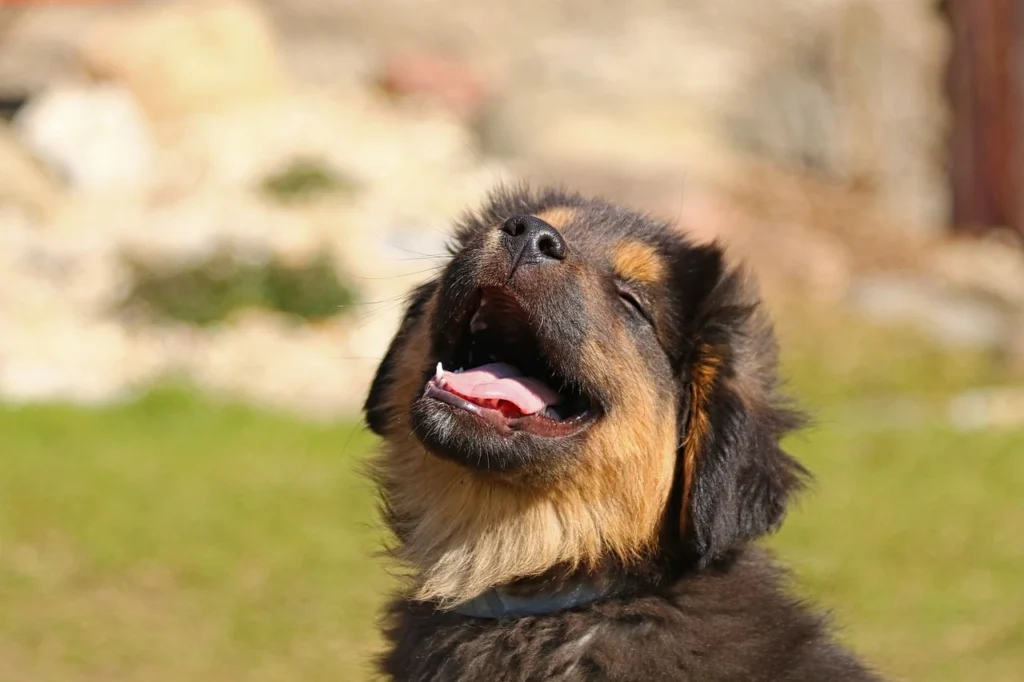
Fair Housing and State Regulations
Washington doesn’t have a single, statewide law governing dog restrictions in housing. Here’s a breakdown of the key factors that come into play:
- Fair Housing Act (FHA): This federal law prohibits discrimination in housing based on several protected classes, including disability. The FHA has specific provisions regarding reasonable accommodations for assistance animals (discussed later).
- Washington Law Against Discrimination (WLAD): This state law mirrors the FHA’s protections and extends them to include source of income (e.g., vouchers) as a protected class.
- Local Ordinances: Some Washington cities and counties might have additional regulations regarding pet restrictions in housing. These can’t be more restrictive than the FHA or WLAD.
Here’s a crucial note: These laws apply to most housing situations, excluding owner-occupied single-family homes where the owner doesn’t rent out more than four units.
Restrictions and Reasonable Accommodations
Landlords in Washington can have pet policies, but these policies must comply with fair housing laws:
- Breed Restrictions: While some landlords might have breed restrictions, these restrictions must be reasonable and not based on stereotypes or outdated prejudices.
- Number of Pets: Landlords can limit the number of pets allowed per dwelling unit. However, these limitations must be reasonable and consistent with similar units.
- Pet Fees: Landlords can charge reasonable pet fees (pet deposit or pet rent) to cover potential pet-related wear and tear. These fees must be separate from the security deposit.
Reasonable Accommodations for Assistance Animals: The FHA and WLAD require landlords to make reasonable accommodations for qualified individuals with disabilities who require assistance animals (service animals or emotional support animals).
- Service Animals: These are specially trained dogs (or miniature horses) that assist people with disabilities in performing specific tasks. Landlords cannot deny housing or charge extra fees for service animals.
- Emotional Support Animals (ESAs): These are animals that provide comfort or emotional support to individuals with a documented mental or emotional disability. Landlords can require documentation from a licensed mental health professional but cannot charge extra pet fees for ESAs (although they can still charge reasonable pet deposits).
It’s crucial to note: Landlords can evict tenants who violate pet policies, including having unauthorized pets or pets causing damage beyond normal wear and tear.
Tips for Renting with a Dog
Finding dog-friendly housing in Washington requires proactive searching and awareness of your rights:
- Research and Ask Questions: Look for rentals advertised as “pet-friendly” and inquire about specific pet policies (breed restrictions, number of pets allowed, pet fees).
- Know Your Rights: Familiarize yourself with the Fair Housing Act, Washington Law Against Discrimination, and your rights regarding assistance animals.
- Be Prepared: Have documentation for your service animal or ESA readily available if requested by a landlord.
- Be a Responsible Pet Owner: Maintain a clean and well-maintained living space, ensure your dog is properly socialized and leash-trained, and promptly clean up after your pet on walks.
Dog Adoption and Sale Laws in Washington
Washington state, with its stunning landscapes and animal-loving communities, is a fantastic place to welcome a dog into your life. Whether you choose adoption or purchase, understanding Washington’s dog adoption and sale laws empowers you to make a responsible and informed decision.

Dog Adoption Options
Dog adoption offers a rewarding experience, giving a loving home to a dog in need. Here’s a breakdown of the Washington adoption landscape:
- Animal Shelters and Rescue Organizations: Numerous animal shelters and rescue organizations throughout Washington care for homeless and abandoned dogs. These organizations conduct adoption processes that typically involve an application, reference checks, and a meet-and-greet with the dog. Adoption fees vary but often cover spaying/neutering, vaccinations, and microchipping.
- Breed-Specific Rescues: Many Washington communities have breed-specific rescue organizations dedicated to rehoming specific dog breeds. This can be a great option if you’re looking for a particular breed.
- Online Adoption Platforms: Several online platforms connect adoptable dogs with potential owners in Washington. These platforms can be a starting point for your search, but it’s crucial to perform due diligence on the source of the dog (discussed later).
Here’s a crucial note: Adopting a dog is a lifelong commitment. Ensure you have the time, resources, and lifestyle to provide a loving and stable home for your new furry companion.
Retail Pet Store Regulations
Washington, in 2021, enacted legislation significantly impacting the retail sale of dogs and cats in pet stores. Here’s a breakdown of the key aspects:
- Ban on Retail Sale: Retail pet stores in Washington are generally prohibited from selling dogs and cats. This aims to encourage adoption from shelters and rescues.
- Exemptions: There are limited exemptions for retail pet stores that obtain dogs directly from USDA-licensed breeders or licensed brokers under the federal Animal Welfare Act. Strict record-keeping requirements are in place for these establishments.
- Focus on Adoption: Pet stores can partner with animal shelters and rescue organizations to facilitate dog adoptions within their stores. This creates a win-win situation for shelters, pet stores, and potential adopters.
Remember: If considering purchasing a dog from a pet store in Washington, ensure they comply with the exemptions and obtain your dog from a reputable source.
Important Considerations for Dog Purchases
While Washington restricts retail pet store sales, purchasing a dog from a responsible breeder remains an option. Here are some crucial considerations:
- Breeder Reputation: Research breeders thoroughly. Look for breeders who prioritize the health and well-being of their dogs, conduct genetic testing for breed-specific health conditions, and socialize their puppies before placement.
- Kennel Club Recognition: Consider breeders affiliated with reputable kennel clubs that have strict breeding standards and ethical guidelines.
- Facility Visits and Health Records: Request a visit to the breeder’s facility to observe the living conditions of the dogs. Ensure the breeder provides copies of health clearances for the parents and a health certificate for the puppy.
- Contracts and Guarantees: Reputable breeders will have a well-defined contract outlining health guarantees, vaccination schedules, and potential return policies.
Here’s a crucial note: By supporting responsible breeders, you contribute to the ethical breeding of healthy, well-socialized dogs. Avoid puppy mills or backyard breeders who prioritize profit over animal welfare.
Choosing the Right Dog for Your Lifestyle
Washington’s dog adoption and sale laws provide a framework, but responsible pet ownership goes beyond legalities. Here are some additional considerations before welcoming a dog into your life:
- Matching Breed to Lifestyle: Research different dog breeds and choose one that aligns with your activity level, living space, and experience level with dog ownership.
- Considering Senior Dogs or Special Needs Animals: Shelters and rescues often house senior dogs or dogs with special needs. Opening your home to these animals can be incredibly rewarding.
- Lifetime Commitment: Remember, adopting or purchasing a dog is a 10-15 year commitment. Ensure you’re prepared for the financial responsibility of veterinary care, food, training, and other expenses.
Dog Park and Recreation Laws in Washington
Washington boasts a vibrant dog-loving community, and enjoying the outdoors with your furry companion is a cherished pastime. Dog parks offer designated spaces for canine socialization and exercise, while exploring trails and beaches holds the promise of adventure. But venturing into these public spaces requires understanding the legalities surrounding dog park and recreation laws in Washington.

The Landscape of Leashes and Laws
Washington doesn’t have a single, statewide law governing dog access in public spaces. Public access rights are determined by a combination of factors:
- State Regulations: Washington has some general regulations regarding service animals (discussed later). However, public access for pet dogs is primarily determined at the city and county level.
- Local Ordinances: Cities and counties can establish ordinances outlining dog access policies in public spaces like parks, trails, and beaches. These ordinances might designate leash requirements, size restrictions for interacting dogs, and proper waste disposal procedures.
- Specific Park Rules: Even within designated dog parks, individual parks might have their own set of rules regarding hours of operation, size restrictions for off-leash areas, or specific use zones for different age groups or activities.
Here’s a crucial note: The absence of a “no dogs allowed” sign doesn’t automatically grant access. Always check with the park authority or consult local ordinances to understand their dog access policies.
Exploring Dog Parks
Washington offers numerous dog parks, providing fenced-in areas for dogs to roam freely and socialize with their canine companions. Here’s a breakdown of essential dog park etiquette and safety considerations:
- Leash Laws and Entering/Exiting: Leash your dog until you enter the designated off-leash area within the dog park. Leash your dog again when exiting the off-leash zone.
- Proper Supervision: Always maintain control and supervision of your dog while in the dog park. This means being attentive to their behavior and intervening in case of conflicts with other dogs.
- Picking Up After Your Dog: Responsible dog ownership requires cleaning up after your dog’s waste. Most dog parks provide waste disposal bags and receptacles. Be a considerate pet owner and dispose of waste properly.
- Understanding Dog Body Language: Pay attention to your dog’s body language and the body language of other dogs. If your dog seems uncomfortable or overwhelmed, remove them from the situation.
Here’s a crucial tip: Before your first visit to a dog park, train your dog on basic obedience commands like “sit,” “stay,” and “come.” This enhances control and ensures a more enjoyable experience for everyone.
Dog Access Regulations for Trails and Beaches
Washington’s stunning scenery beckons outdoor enthusiasts, and many trails and beaches welcome leashed dogs. Here’s what you need to know:
- Trail Regulations: Research trail regulations before heading out. Some trails might be off-limits to dogs due to sensitive wildlife habitats, public safety concerns, or potential conflicts with other users. Leash requirements can also vary depending on the trail.
- Beach Access: Dog access to beaches can vary depending on location. Some beaches might allow leashed dogs year-round, while others might have seasonal restrictions or designated off-leash zones. Always check local regulations and be mindful of leash requirements and cleaning up after your dog.
Remember: Following posted signage and respecting leash laws on trails and beaches is crucial for ensuring a safe and enjoyable experience for everyone using these public spaces.
Responsible Dog Recreation
Following legal guidelines is essential, but responsible dog recreation goes beyond the law:
- Socialization: Ensure your dog is well-socialized before frequenting dog parks or encountering other dogs on trails or beaches.
- Vaccination and Parasite Prevention: Maintain your dog’s vaccinations and parasite prevention medication to protect them and other dogs from potential illnesses.
- Respecting Wildlife and Other Users: Be mindful of wildlife habitats on trails and maintain a safe distance from wildlife. On beaches, respect the space of other beachgoers and keep your dog leashed unless in designated off-leash zones.
- Weather Considerations: Avoid strenuous activities with your dog during extreme heat. Always carry water for your dog on hikes and ensure they have access to shade during hot weather.
Dog Food and Nutrition Laws in Washington
Washington, with its focus on healthy living, extends that philosophy to our furry companions. While there aren’t specific state laws directly regulating dog food ingredients or labeling in Washington, providing your dog with a nutritious diet is crucial for their well-being.

The Regulatory Landscape
While Washington doesn’t have its own dog food laws, the following national regulations play a significant role:
- The Federal Food, Drug, and Cosmetic Act (FD&C Act): This federal law empowers the Food and Drug Administration (FDA) to oversee the safety of animal foods, including pet food. The FDA sets guidelines for labeling, good manufacturing practices, and investigates potential pet food safety concerns.
- Association of American Feed Control Officials (AAFCO): This non-profit organization establishes nutritional guidelines for pet food and publishes model pet food regulations that many states, including Washington, adopt by reference.
Here’s a crucial note: The onus of ensuring your dog’s food is safe and nutritious falls on you, the pet owner. Understanding labeling information and researching reputable dog food brands is essential.
Decoding Dog Food Labels
Dog food labels can be dense with information, but understanding them empowers you to make informed choices about your dog’s diet. Here’s a breakdown of key elements:
- Product Name and Brand: Identifies the food and manufacturer.
- Guaranteed Analysis: Lists the minimum percentages of protein, fat, fiber, and moisture content, as well as maximum percentages of ash (mineral content) and water.
- Ingredient List: Ingredients are listed in descending order by weight, with the first ingredient being the most prevalent.
- Nutritional Adequacy Statement: This statement indicates whether the food meets AAFCO’s nutritional guidelines for a specific life stage (puppy, adult, senior) or activity level.
- Feeding Guidelines: Provides recommended feeding amounts based on your dog’s weight and activity level. These are starting points, and adjustments might be necessary based on your dog’s individual needs.
Considerations for Choosing Safe and Healthy Dog Food
Understanding labels is crucial, but other factors contribute to choosing healthy dog food:
- Consult Your Veterinarian: Discuss your dog’s specific needs with your veterinarian. They can recommend appropriate food based on your dog’s breed, age, activity level, and any potential health concerns.
- Focus on Whole Food Ingredients: Look for dog foods with a high concentration of whole food ingredients like meat, poultry, fish, and whole grains. Avoid foods with excessive fillers, artificial flavors, or colors.
- Research Dog Food Brands: Reputable dog food brands prioritize quality ingredients, conduct safety testing, and prioritize transparency in labeling. Research online reviews and compare brands before making a selection.
- Beware of Fads and Misinformation: The pet food industry can be full of trends and conflicting information. Focus on evidence-based recommendations from veterinarians and reputable organizations like AAFCO.
Reporting Concerns About Dog Food Safety
While Washington doesn’t have a dedicated dog food safety agency, here’s how to report concerns:
- The U.S. Food and Drug Administration (FDA): The FDA has a reporting system for pet food complaints. You can report suspected foodborne illness in your dog or concerns about the safety of a specific dog food brand.
- Your Veterinarian: If you suspect your dog is experiencing health problems related to their food, immediately consult your veterinarian. They can provide treatment and potentially report the issue to the FDA.
Dog Health and Veterinary Care Laws in Washington
Washington state boasts a population passionate about animal welfare, and ensuring your dog receives proper veterinary care is crucial for their health and well-being. Understanding Washington’s dog health and veterinary care laws empowers you to make informed decisions regarding your furry friend’s medical needs.
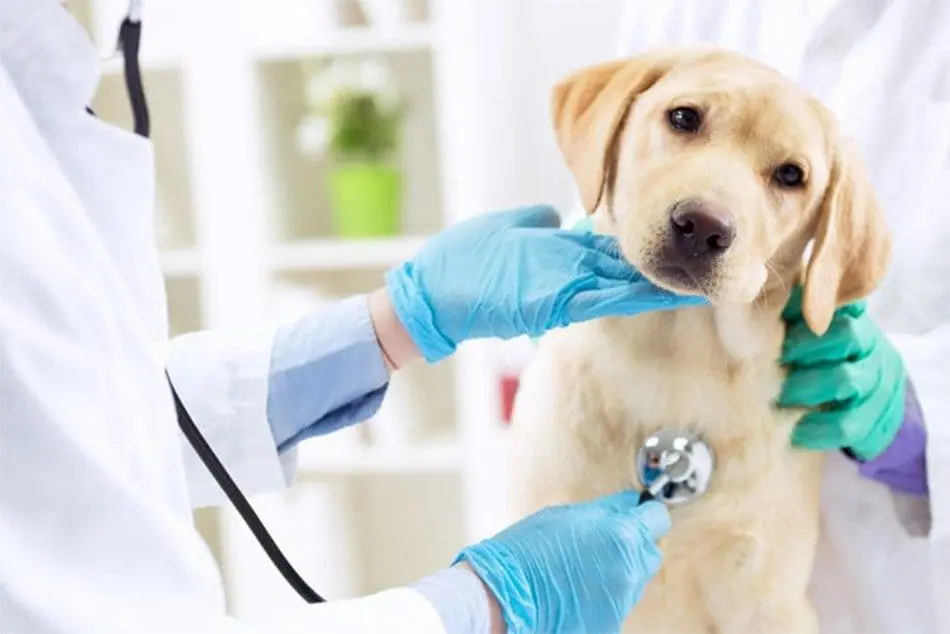
National Standards and Washington-Specific Laws
While there aren’t extensive, state-specific dog health laws in Washington, national regulations and professional licensing ensure qualified veterinary care:
- The Federal Animal Welfare Act (AWA): This federal law sets minimum standards for animal care, including those housed in research facilities and commercial breeding kennels.
- Washington Veterinary Practice Act: This law governs the practice of veterinary medicine in Washington. It outlines licensing requirements for veterinarians and veterinary technicians, ensuring they possess the necessary education and training to provide competent care.
- Rabies Vaccination Requirements: Washington, like most states, mandates rabies vaccinations for all dogs. Specific vaccination schedules and booster requirements can vary depending on the age of your dog.
Here’s a crucial note: While these are the primary legal considerations, veterinarians adhere to established ethical codes and best practices to ensure your dog’s well-being.
Understanding Veterinary Licensing
Washington’s Veterinary Practice Act safeguards animal health by requiring veterinary professionals to be licensed:
- Licensed Veterinarians: Only veterinarians who have graduated from an accredited veterinary school, passed national and state examinations, and hold a valid Washington veterinary license can diagnose and treat animals.
- Licensed Veterinary Technicians: Veterinary technicians work under the supervision of veterinarians and can perform specific tasks like administering medications, assisting with surgeries, and collecting laboratory samples. They must also be licensed in Washington.
Essential Practices for Responsible Dog Ownership
Washington’s laws provide a framework, but responsible dog ownership goes beyond legal mandates:
- Regular Veterinary Checkups: Schedule regular checkups with your veterinarian, even if your dog seems healthy. These preventive checkups allow early detection of potential health issues and promote overall well-being.
- Vaccinations and Parasite Prevention: Maintain your dog’s vaccinations according to your veterinarian’s recommendations. Additionally, use parasite prevention medication to protect your dog from fleas, ticks, heartworms, and other parasites.
- Microchipping: Consider microchipping your dog. Microchips are tiny implants containing identification information and can significantly increase the chances of your dog being reunited with you if they become lost.
- Spaying or Neutering: Spaying and neutering your dog offers numerous health benefits and helps control pet homelessness. Discuss this option with your veterinarian.
- Dental Care: Dental hygiene is crucial for your dog’s overall health. Regularly brush your dog’s teeth or provide dental chews to promote oral health and prevent dental disease.
- Healthy Diet and Exercise: Provide your dog with a balanced and age-appropriate diet, and ensure they receive regular exercise to maintain a healthy weight and prevent obesity-related health problems.
Navigating Veterinary Emergencies
Even with responsible care, emergencies can arise. Here’s how to be prepared for veterinary emergencies in Washington:
- Find an Emergency Veterinarian Clinic: Research and locate a 24-hour veterinary emergency clinic near your residence beforehand. Store their contact information readily available.
- Know the Signs of an Emergency: Familiarize yourself with the signs of a veterinary emergency, such as difficulty breathing, excessive bleeding, vomiting or diarrhea, seizures, or sudden lethargy. If you suspect an emergency, don’t hesitate to seek immediate veterinary care.
- Pet Insurance: Consider pet insurance to help manage the financial burden of unexpected veterinary expenses. There are various pet insurance options available, so compare plans to find one that meets your needs and budget.
Dog Identification and Microchipping Laws in Washington
Washington state, with its vibrant communities and abundant outdoor spaces, is a haven for dog owners. But ensuring your furry friend stays safe and can be identified if they wander off is crucial.

The Landscape of Dog Identification
While Washington doesn’t have a statewide microchipping mandate, identification remains essential:
- Dog License and Tag: All dogs four months of age or older in Washington must be licensed with their county or city animal control agency. This license typically comes with a physical identification tag containing your dog’s license number and rabies vaccination information.
- Leash Laws: Most Washington cities and counties have leash laws mandating dogs be leashed in public spaces like parks, trails, and sidewalks. Leash laws help prevent dog bites, fights, and ensure the safety of both dogs and the public.
Remember: Even in off-leash areas like designated dog parks, responsible pet ownership requires maintaining control of your dog through voice commands or a long leash.
The Power of Microchipping
While not mandatory, microchipping offers a permanent and reliable method of dog identification:
- Microchip Implantation: A microchip is a tiny rice-sized device implanted under your dog’s skin between the shoulder blades. It contains a unique identification number that can be read by a scanner at veterinary clinics and animal shelters.
- Reuniting Lost Pets: If your dog gets lost and ends up at a shelter or veterinary clinic, a microchip scan can quickly identify you as the owner, significantly increasing the chances of a successful reunion.
- Nationwide Database Registration: After microchipping your dog, register the chip number with a national pet recovery database. This ensures your contact information is readily available when your dog’s microchip is scanned.
Understanding the Benefits of Microchipping
Microchipping offers numerous advantages for responsible dog ownership in Washington:
- Permanent Identification: Unlike collars and tags that can fall off or become lost, microchips offer a permanent and reliable method of identification.
- Peace of Mind: Knowing your dog is microchipped provides peace of mind, especially for adventurous pups or those prone to escaping.
- Increased Recovery Rates: Studies show microchipped dogs are significantly more likely to be reunited with their owners if lost.
- Beyond State Lines: Microchips are recognized nationwide, increasing the chances of your dog being identified and returned to you even if they wander across state borders.
Here’s a note: Microchipping is a quick and relatively painless procedure typically performed by veterinarians during a routine vet visit.
Responsible Dog Ownership
Washington’s dog identification laws provide a framework, but responsible ownership goes beyond legal mandates:
- Collar and ID Tag: Even with a microchip, always ensure your dog wears a well-fitting collar with a current ID tag containing your name, phone number, and your dog’s license number. This provides immediate contact information for anyone who finds your dog.
- Maintain Updated Information: Keep your contact information associated with your dog’s license and microchip registration current. If you move or change phone numbers, update your information promptly.
- Supervising Your Dog: Never leave your dog unattended outdoors, especially if they are not securely fenced in. Proper supervision helps prevent them from wandering off and getting lost.
- Training and Socialization: Train your dog on basic obedience commands like “come” and “stay,” and socialize them from a young age. This improves control and reduces the likelihood of them running off in unfamiliar situations.
By following these responsible dog ownership practices, you can significantly reduce the risk of your dog getting lost and ensure a happy and secure life together.
Dog Breeding and Genetics Laws in Washington
Washington state boasts a vibrant dog-loving community, and for some, the thought of breeding their beloved canine companion can be an exciting prospect. However, responsible dog breeding requires careful consideration and understanding of relevant laws and regulations.

The Landscape of Breeding Regulations
While Washington doesn’t have a single, statewide law governing dog breeding, several factors come into play:
- Federal Laws: The Animal Welfare Act (AWA) sets minimum care standards for animals, including those housed in commercial breeding kennels. However, the AWA doesn’t regulate specific breeding practices.
- Washington Department of Agriculture (WSDA): The WSDA licenses and inspects commercial kennels in Washington. These inspections ensure compliance with minimum housing, feeding, and veterinary care standards for breeding dogs.
- Local Ordinances: Many Washington cities and counties have ordinances regulating dog breeding within their jurisdictions. These ordinances might address kennel licensing, breeding limitations (number of litters per year), or specific requirements for outdoor enclosures.
Here’s a crucial note: Even if you don’t operate a commercial kennel, responsible breeding practices are essential for the health and well-being of breeding dogs and puppies.
Ethical Breeding Practices
Washington’s laws provide a baseline, but ethical breeding goes beyond legal requirements:
- Breeder Reputation: Research potential breeding partners for your dog. Look for breeders who prioritize the health and temperament of their dogs, conduct genetic testing for breed-specific health conditions, and socialize their puppies before placement.
- Kennel Club Recognition: Consider breeders affiliated with reputable kennel clubs like the American Kennel Club (AKC) or the Canadian Kennel Club (CKC). These organizations have established breeding standards and ethical guidelines to promote responsible breeding practices.
- Health Testing and Pedigree: Ensure both the sire (father) and dam (mother) of the breeding pair undergo genetic testing for common health problems within their breed. A documented pedigree allows for tracking lineage and avoiding potential genetic issues.
- Proper Care for Breeding Dogs and Puppies: Provide breeding dogs with high-quality food, proper veterinary care, and ample opportunities for exercise. Socialize puppies from a young age to ensure well-adjusted personalities.
Considering Responsible Alternatives
While breeding can be a rewarding experience, it’s not for everyone. Here are some responsible alternatives to consider:
- Spaying and Neutering: Spaying and neutering your dog offers numerous health benefits and helps control pet homelessness. Discuss this option with your veterinarian.
- Adoption: Many Washington shelters and rescues house wonderful dogs of various breeds and ages. Opening your home to a dog in need can be an incredibly fulfilling experience.
Here’s a crucial note: Backyard breeders or puppy mills prioritize profit over animal welfare. Avoid purchasing puppies from these sources, and consider adopting a dog from a reputable shelter or rescue organization.
Responsible Breeding for Dog Health and Welfare
Ethical breeding practices contribute significantly to the health and well-being of dogs:
- Genetic Diversity: Responsible breeders strive to maintain genetic diversity within breeds, reducing the risk of inherited health problems.
- Temperament and Trainability: Ethical breeders select breeding stock with good temperaments, ensuring puppies have a higher chance of being well-adjusted and trainable companions.
- Socialization and Early Development: Responsible breeders provide proper socialization for puppies during their critical development period, leading to confident and well-adjusted dogs.
Dog Environmental Impact Laws in Washington
Washington state, with its stunning natural beauty and abundant outdoor spaces, is a paradise for dog owners and their canine companions. However, responsible pet ownership extends beyond providing love and care – it also encompasses minimizing our furry friend’s environmental impact. T

National and Local Regulations
While there aren’t specific state-wide laws solely focused on dog waste management in Washington, several regulations and best practices contribute to a clean and healthy environment:
- Federal Clean Water Act: This federal law aims to protect and restore the nation’s water bodies. Dog waste, containing harmful bacteria and parasites, can pollute waterways if not disposed of properly.
- Washington State Department of Ecology (WDOE): The WDOE works to protect Washington’s environment, including its water quality. They provide resources and guidelines for responsible pet ownership practices that minimize environmental impact.
- Local Ordinances: Many Washington cities and counties have ordinances mandating the proper disposal of dog waste. These ordinances might require carrying waste bags while walking your dog and disposing of waste in designated waste receptacles.
Here’s a crucial note: Even in the absence of specific dog waste laws, responsible pet ownership dictates proper waste disposal to safeguard our environment and public health.
Responsible Dog Waste Management Practices
Washington’s laws provide a framework, but responsible dog ownership goes beyond legal mandates:
- Always Carry Waste Bags: Make it a habit to carry撿拾糞便袋 (jiǎn shí fèn biào) (waste bags) whenever you walk your dog. This ensures you can dispose of waste properly, regardless of location.
- Pick Up Waste Promptly: Don’t leave dog waste behind, even in natural areas that might seem remote. Waste can contaminate waterways, harm wildlife, and pose a health risk to humans and other animals.
- Dispose of Waste in Designated Receptacles: Look for designated dog waste disposal bins in parks, trails, and other public spaces. If no bins are available, double bag the waste and dispose of it in a trash can at home.
- Leave No Trace: When enjoying the outdoors with your dog, adhere to Leave No Trace principles. This includes packing out all waste, minimizing your impact on natural habitats, and respecting wildlife.
Environmental Considerations for Dog Owners
While waste management is crucial, other aspects of dog ownership can impact the environment:
- Sustainable Pet Food: Consider eco-friendly pet food options made with sustainable ingredients and minimal packaging.
- Water Conservation: Use a portable water bowl and fill it only when necessary to minimize water waste during walks and outings.
- Eco-Friendly Pet Supplies: Look for durable and eco-friendly dog toys, leashes, and other pet supplies made from recycled materials.
- Responsible Travel: Plan dog-friendly travel that minimizes environmental impact. Research pet-friendly accommodations and outdoor recreation areas that promote responsible pet ownership.
Here’s a note: By making small, conscious choices, dog owners can significantly reduce their environmental footprint and contribute to a healthier planet for everyone.
Promoting Responsible Dog Ownership
Several resources and initiatives promote responsible dog ownership and environmental stewardship in Washington:
- Washington State Department of Ecology (WDOE): The WDOE website offers resources on pet waste management and responsible pet ownership practices. They also highlight community clean-up events.
- Non-profit Organizations: Many animal welfare and environmental organizations advocate for responsible pet ownership and offer educational resources for dog owners.
- Veterinarians: Veterinarians can be a valuable source of information on responsible pet care and environmental considerations.
Dog Behavioural Training Laws in Washington
Washington boasts a vibrant dog-loving community, and training your furry friend is crucial for a harmonious life together. While there aren’t specific laws mandating dog training in Washington, understanding responsible ownership practices and available resources empowers you to raise a well-behaved canine companion.
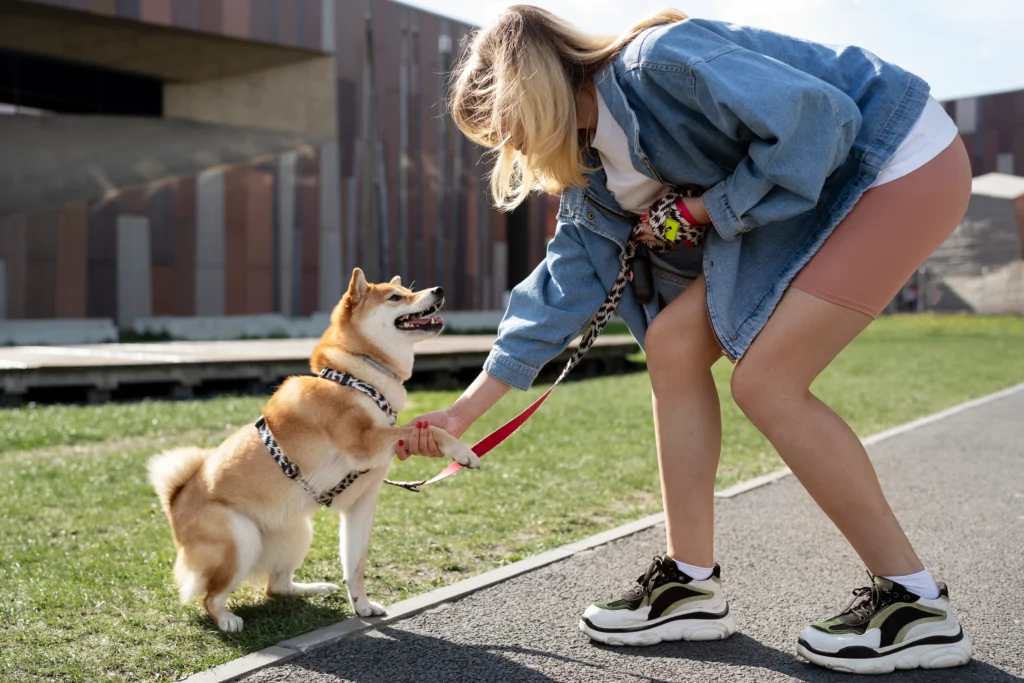
National Guidelines and Local Ordinances
Washington doesn’t have a single, statewide law governing dog training. However, consider these factors:
- American Veterinary Medical Association (AVMA): The AVMA promotes positive reinforcement training methods based on mutual respect and clear communication between dogs and their owners.
- Washington State Department of Agriculture (WSDA): The WSDA enforces animal cruelty laws in Washington. While not directly related to training, these laws ensure dogs receive humane treatment.
- Local Ordinances: Some Washington cities and counties have ordinances addressing specific dog behaviors, such as leash laws or regulations on barking dogs. Understanding these local ordinances can help you train your dog to be a good citizen in your community.
Here’s a crucial note: Even without mandated training, responsible dog owners prioritize positive reinforcement training methods to create a well-behaved and happy dog.
Essential Practices for Responsible Dog Training
Washington’s laws provide a framework for animal welfare, but responsible training goes beyond legal mandates:
- Positive Reinforcement Training: Positive reinforcement training focuses on rewarding desired behaviors and using gentle corrections for unwanted behaviors. This method fosters a positive relationship between you and your dog.
- Socialization: Socialize your dog from a young age by exposing them to different people, animals, and environments. This helps them develop confidence and prevents fear-based behaviors.
- Obedience Training: Teach your dog basic obedience commands like “sit,” “stay,” “come,” and “heel.” This provides you with control and promotes safety in various situations.
- Addressing Behavioral Issues: If your dog exhibits behavioral problems like excessive barking, chewing, or leash aggression, consult a certified professional dog trainer for guidance and personalized training plans.
Finding the Right Training Approach
Several dog training methods are available in Washington, each with its approach:
- Positive Reinforcement Training: This reward-based method focuses on praising and treating your dog for good behavior. It’s considered a humane and effective training approach.
- Clicker Training: Clicker training uses a clicker to mark desired behaviors, followed by a reward. It’s a positive reinforcement technique that can be particularly helpful for precise training.
- Dominance-Based Training: This approach emphasizes establishing dominance over your dog. While some traditional trainers might use this method, it can be stressful for dogs and is not recommended by reputable organizations like the AVMA.
Here’s a note: Washington dog owners should prioritize positive reinforcement training methods for a happy and well-adjusted canine companion.
Additional Resources
Numerous resources can support your dog training journey in Washington:
- Veterinarians: Veterinarians can offer valuable advice on dog training and recommend qualified trainers if needed.
- Animal Shelters and Rescue Organizations: Many shelters and rescues offer dog training classes or resources on responsible pet ownership.
- Online Resources: Several reputable online resources provide dog training information and tutorials. However, ensure the information comes from qualified sources that promote positive reinforcement methods.
The Importance of Responsible Training
Investing time and effort into training your dog offers numerous benefits:
- Enhanced Communication: Effective training fosters a strong bond and improves communication between you and your dog.
- Safety and Control: A well-trained dog is easier to manage in various situations, promoting safety for both your dog and others.
- Reduced Behavioral Issues: Training can address unwanted behaviors like excessive barking, chewing, or leash reactivity.
Dog Protection and Rescue Laws in Washington
Washington state, with its abundant dog-loving communities, prioritizes the welfare of animals. Understanding the legal framework for dog protection and rescue empowers you to be a responsible owner and advocate for your furry friend.

The Landscape of Dog Protection
Several factors contribute to dog protection in Washington:
- Federal Animal Welfare Act (AWA): This federal law sets minimum care standards for animals, including those housed in research facilities and commercial breeding kennels. While it doesn’t directly address pet ownership, the AWA establishes a baseline for animal welfare.
- Washington State Anti-Cruelty Laws: Washington has animal cruelty laws outlined in Chapter 16.08 RCW (Revised Code of Washington). These laws prohibit intentional infliction of suffering or death on animals, including neglect and abandonment.
- Washington Department of Agriculture (WSDA): The WSDA enforces animal cruelty laws and licenses and inspects commercial kennels in Washington. They ensure compliance with minimum housing, feeding, and veterinary care standards for dogs.
Here’s a crucial note: Even beyond legal mandates, responsible pet ownership dictates providing your dog with love, proper care, and a safe environment.
Animal Cruelty Laws
Washington’s anti-cruelty laws (RCW 16.08) safeguard dogs from neglect and abuse:
- Physical Harm: Intentionally inflicting pain, injury, or death on a dog is illegal.
- Neglect: Failing to provide necessary food, water, shelter, sanitation, ventilation, space, or medical attention is considered neglect and punishable by law.
- Abandonment: Leaving a dog behind without proper provisions is illegal.
If you suspect animal cruelty:
- Report It: Report suspected animal cruelty to your local animal control agency or the Washington Department of Agriculture.
- Gather Evidence: If possible, document the situation with photos or videos as evidence.
Responsible Dog Ownership Practices
Washington’s laws provide a legal framework, but responsible ownership goes beyond legal mandates:
- Provide for Your Dog’s Basic Needs: Ensure your dog has access to clean water, nutritious food, proper shelter, and regular veterinary care.
- Offer Enrichment and Exercise: Provide your dog with mental stimulation through toys, training, and walks. Regular exercise is crucial for their physical and mental well-being.
- Prevent Escapes: Ensure your dog’s enclosure is secure and they wear a well-fitting collar with ID tags in case of accidental escape.
- Supervise Your Dog: Never leave your dog unattended outdoors, especially if they are not securely fenced in. Proper supervision helps prevent them from getting lost, injured, or causing harm to others.
By following these responsible ownership practices, you can significantly contribute to your dog’s safety and happiness.
The Role of Animal Shelters and Rescue Organizations
Animal shelters and rescue organizations play a vital role in protecting and rehoming dogs in Washington:
- Animal Shelters: Many Washington cities and counties operate animal shelters that house stray, abandoned, and surrendered dogs. Shelters provide care for these dogs and work to find them loving forever homes.
- Rescue Organizations: Washington has numerous non-profit animal rescue organizations dedicated to rescuing dogs from various situations, including high-kill shelters, neglectful environments, or commercial breeding facilities. These organizations provide care, rehabilitation, and adoption services.
Dog Entertainment and Work Laws in Washington
Washington state boasts a vibrant dog-loving community, and many dog owners dream of including their furry companions in work or entertainment activities. However, navigating the legal landscape surrounding dog participation in these areas can be tricky.
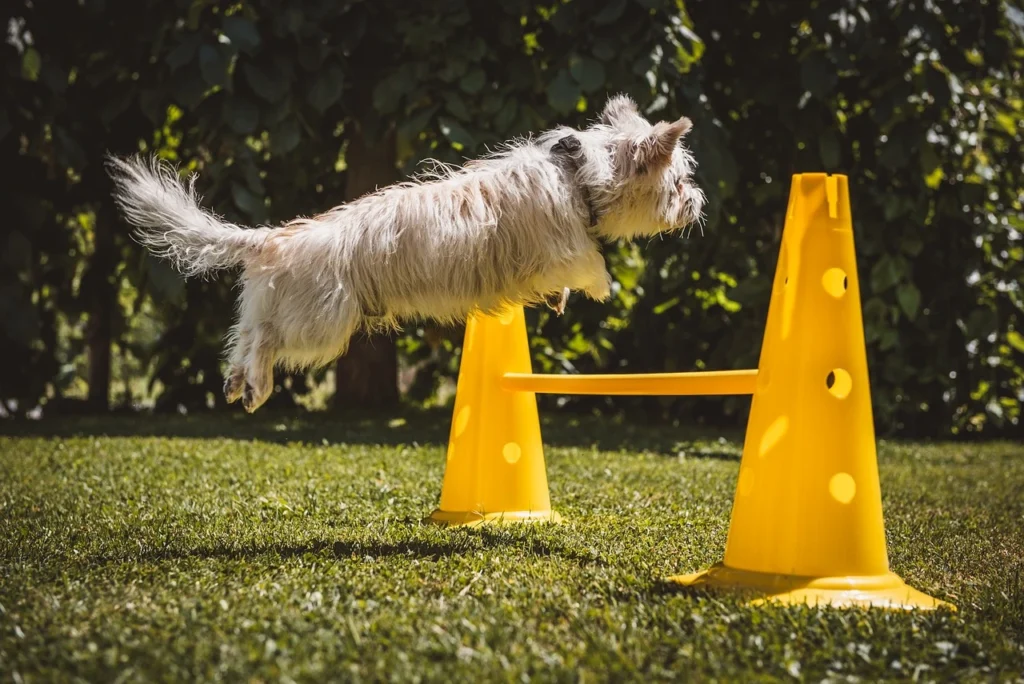
Nuances of Dog Work and Entertainment
While there aren’t always clear-cut laws specifically for dog entertainment and work in Washington, consider these factors:
- Federal Animal Welfare Act (AWA): This federal law establishes minimum care standards for animals used in various capacities, including research facilities, exhibitions, and performances. The AWA ensures humane treatment and appropriate environments.
- Washington Department of Agriculture (WSDA): The WSDA enforces animal cruelty laws and regulates commercial breeding kennels. They can offer guidance on specific activities involving dogs.
- Local Ordinances: Some Washington cities and counties might have ordinances related to dog-friendly businesses or events. These might require specific health certifications or training for dogs participating in public settings.
Here’s a crucial note: Even in the absence of specific laws, prioritizing your dog’s well-being and safety is paramount in any work or entertainment activity.
Exploring Safe and Rewarding Activities
Washington offers numerous dog-friendly entertainment options, but ensure they’re suitable for your dog:
- Dog Parks: Many Washington cities and counties have designated dog parks where dogs can socialize and play off-leash in a safe environment.
- Hiking and Camping: Washington boasts stunning natural landscapes. If taking your dog hiking or camping, prioritize their safety – ensure they are leashed when necessary, well-hydrated, and comfortable with the terrain.
- Dog-Friendly Events: Several Washington communities host dog-friendly events like dog shows, agility competitions, or charity walks. Research the event requirements and ensure your dog is comfortable with the environment and activity level.
Requirements for Dog Entertainment Activities
Participating in dog entertainment activities might involve specific requirements:
- Temperament and Training: Ensure your dog is well-socialized, comfortable in new environments, and responds well to basic commands before participating in dog parks, events, or outings with large crowds.
- Vaccinations: Keep your dog’s vaccinations current, especially if they will be interacting with other dogs in dog parks or events.
- Licensing and Identification: Ensure your dog is licensed and has a well-fitting collar with ID tags for easy identification if they get separated from you.
Here’s a note: Respecting leash laws and cleaning up after your dog is crucial in all dog-friendly public spaces.
Legalities and Responsible Practices
While not as common, some Washington dogs participate in specific working roles:
- Service Animals: Federal law protects the rights of individuals with disabilities to be accompanied by trained service animals in public spaces. Service animals assist with specific disabilities, such as guide dogs for the visually impaired or hearing assistance dogs.
- Therapy Animals: Therapy animals provide comfort and emotional support in settings like hospitals, nursing homes, or schools. While not protected by the same rights as service animals, some facilities might allow certified therapy animals with proper training and temperament.
- Working K-9s: Law enforcement and other agencies utilize specially trained K-9s for various tasks. These dogs receive extensive training and specialized care to excel in their roles.
Here’s a crucial note: It’s important to distinguish between service animals, therapy animals, and working K-9s. Only trained service animals have legal access rights in public spaces.
Prioritizing Dog Well-being
Regardless of the activity, your dog’s well-being should be the top priority:
- Physical Fitness: Ensure your dog’s physical fitness is appropriate for the planned activity. Don’t push them beyond their capabilities.
- Heat Stress and Weather Conditions: Be mindful of weather conditions in Washington. Avoid strenuous activities on hot days or choose shady areas for walks.
- Hydration and Breaks: Provide your dog with ample water and breaks during any activity.
Dog Technology and Innovation Laws in Washington
Washington state, a hub for innovation and technology, is seeing a rise in pet tech products aimed at enhancing dog health and well-being. However, the legal landscape surrounding these advancements can be unclear.

Regulatory Frameworks
While Washington doesn’t have specific laws directly regulating pet tech products, several factors come into play:
- Federal Laws: The Federal Food, Drug, and Cosmetic Act (FD&C Act) governs the safety and effectiveness of medical devices, including those marketed for animal use.
- Washington State Department of Agriculture (WSDA): The WSDA regulates animal health and welfare in Washington. They might offer guidance on specific pet tech products impacting animal well-being.
- Consumer Protection Laws: Washington consumer protection laws ensure fair and accurate marketing practices. Be wary of exaggerated claims about pet tech products.
Here’s a crucial note: The pet tech industry is rapidly evolving, and regulatory frameworks might adapt in the future.
Exploring Popular Dog Tech Product
Several dog tech products offer features designed to enhance your dog’s life:
- GPS Trackers: These wearable devices allow you to monitor your dog’s location in real-time, promoting peace of mind for adventurous pups.
- Automated Feeders and Water Dispensers: These devices provide scheduled feeding and water dispensing, ensuring consistent access for your dog.
- Remote Cameras and Activity Monitors: These tools allow you to monitor your dog remotely, offering a glimpse into their behavior while you’re away.
- Smart Toys and Interactive Games: These products can keep your dog entertained and stimulate their minds while you’re busy.
Considering Safety and Ethical Implications of Dog Tech
While dog tech offers potential benefits, consider these factors before incorporating them into your dog’s life:
- Data Privacy: Understand how pet tech devices collect, store, and use your dog’s data. Choose products with strong privacy policies.
- Cybersecurity: Ensure the pet tech devices you use have adequate security measures to protect your dog’s data from hacking.
- Over-reliance on Technology: Don’t replace quality time and interaction with your dog with excessive dependence on technology.
- Potential for Misuse: Be cautious of products that claim to address behavioral problems – positive reinforcement training and professional guidance are often more effective solutions.
Here’s a note: Prioritize responsible pet ownership practices alongside any dog tech products you choose.
The Future of Dog Technology Innovation
The future of dog tech holds exciting possibilities for enhancing dog health and well-being:
- Wearable Health Monitors: Advancements in wearable technology could provide real-time insights into your dog’s health, potentially promoting early detection of health issues.
- Telemedicine for Pets: Telemedicine consultations with veterinarians might become more accessible with the help of dog tech, offering convenient care options for pet owners.
- Personalized Training Tools: Interactive training tools could personalize training plans for your dog, catering to their specific needs and learning styles.
However, challenges remain:
- Regulation and Safety: Ensuring the safety and effectiveness of new dog tech products will require continued regulatory development.
- Accessibility and Affordability: New innovations might not be readily accessible or affordable for all pet owners.
Here’s a SEO tip: Search online for “[invalid URL removed]” to learn more about potential advancements in dog health technology.
Recommendations for Responsible Pet Owners
As a responsible Washington dog owner navigating the world of pet tech:
- Research Thoroughly: Research any pet tech product before purchase, considering its features, safety record, and customer reviews.
- Consult Your Veterinarian: Discuss incorporating dog tech with your veterinarian to ensure it aligns with your dog’s needs and doesn’t replace necessary vet care.
Human Coexistence Laws in Washington
Washington state boasts a vibrant dog-loving community, and fostering a strong bond with your canine companion is an enriching experience. However, understanding the legal framework that promotes responsible dog ownership and peaceful coexistence in public spaces is crucial.

National Guidelines and Local Ordinances
While there isn’t a single, statewide law solely focused on human-dog interactions in Washington, several factors contribute to a harmonious environment:
- American Society for the Prevention of Cruelty to Animals (ASPCA): The ASPCA advocates for responsible pet ownership and promotes positive interactions between dogs and humans. Their resources offer valuable guidelines.
- Washington State Department of Agriculture (WSDA): The WSDA enforces animal cruelty laws in Washington, ensuring dogs receive proper care and treatment. This indirectly promotes positive human-dog interactions.
- Local Ordinances: Many Washington cities and counties have ordinances addressing leash laws, dog waste management, and access to public spaces. These ordinances aim to create a safe and enjoyable environment for both dog owners and non-dog owners.
Here’s a crucial note: Even beyond legal mandates, responsible pet ownership dictates ensuring your dog’s behavior doesn’t pose a threat or nuisance to others.
Responsible Dog Ownership Practices for Harmony
Washington’s laws provide a framework, but responsible ownership goes beyond legal mandates:
- Leash Laws: Always comply with leash laws in your area. Leashes ensure control of your dog and promote safety for both your dog and others.
- Socialization: Socialize your dog from a young age to ensure they are comfortable interacting with different people in various settings.
- Voice Control: Train your dog to respond to basic commands like “sit,” “stay,” and “come.” This allows you to maintain control and ensures a positive interaction if your dog encounters someone unfamiliar.
- Picking Up After Your Dog: Always clean up after your dog’s waste. This maintains a clean and sanitary environment for everyone to enjoy.
Leash Laws and Responsible Leash Use
Leash laws are crucial for promoting safety and responsible dog ownership in Washington:
- Leash Length: Leash laws often specify the maximum allowable leash length. Use a leash that allows you to maintain control of your dog.
- Retractable Leashes: Use retractable leashes with caution, as they can offer less control and lead to unexpected encounters with other people or animals.
- High-Traffic Areas: Always leash your dog in high-traffic areas like sidewalks, parks, or crowded spaces.
Here’s a note: Some Washington locations might have designated off-leash areas like dog parks. Ensure your dog is well-socialized and has good recall before allowing them off-leash in these areas.
Regulations and Etiquette
Washington offers numerous dog-friendly public spaces, but understanding regulations and proper etiquette is essential:
- Dog-Friendly Businesses: Many Washington businesses welcome well-behaved dogs. Look for signage indicating pet-friendliness and inquire about any specific rules before entering.
- Restaurants with Outdoor Patios: Some restaurants allow dogs on outdoor patios. Ensure your dog is comfortable in an outdoor environment and doesn’t disturb other patrons.
- Public Transportation: Some public transportation options in Washington might allow dogs under specific conditions – check with the provider for details and any necessary equipment like carriers.
Other Relevant Dog Laws in Washington
Canine Good Citizen (CGC) Programs and Legal Benefits
- CGC Programs: The American Kennel Club (AKC) offers Canine Good Citizen (CGC) programs that certify well-mannered and socialized dogs. While not legally mandated in Washington, CGC certification can demonstrate responsible ownership and potentially offer benefits like:
- Discounts on pet insurance or training classes
- Relaxation of breed restrictions in some rental properties
Dog Insurance and Coverage Laws
- Dog Insurance: While not mandated by law, pet insurance can help cover veterinary expenses in case of accidents or illnesses.
- Coverage: Research different pet insurance providers in Washington to understand their coverage options for accidents, illnesses, and wellness care.
Laws Regarding Dogs in Hot Cars and Animal Endangerment
- Washington Animal Cruelty Laws (RCW 16.08): Leaving a dog unattended in a hot car can be considered animal cruelty under these laws. Cars heat up rapidly, posing a serious danger to your dog’s health. Never leave your dog in a hot car, even for a short period.
- Report suspected animal cruelty to your local animal control agency or the Washington Department of Agriculture.
Legal Aspects of Dog Parks and Shared Spaces
- Leash Laws and Off-Leash Areas: Leash laws are generally enforced in public spaces, with designated off-leash areas like dog parks being exceptions. Always follow the specific rules of each dog park, including:
- Ensuring your dog is properly vaccinated and licensed.
- Maintaining control of your dog with a leash until entering the off-leash area.
- Cleaning up after your dog’s waste.
- Being mindful of other dogs and their owners.
- Local Ordinances: Some Washington cities and counties might have additional regulations regarding dog parks or shared spaces.
Dog-Related Property Damage and Homeowner’s Insurance
- Homeowner’s Insurance: Most homeowner’s insurance policies cover dog-related property damage to your own property with limitations. However, liability for damage to others’ property might be limited or excluded.
- Review your homeowner’s insurance policy and consider additional liability coverage if necessary.
Service and Working Dog Laws in Employment and Public Access
- Federal Americans with Disabilities Act (ADA): This federal law protects the rights of individuals with disabilities to be accompanied by trained service animals in public spaces. Service animals assist with specific disabilities, such as guide dogs for the visually impaired or hearing assistance dogs.
- Washington State Law (RCW 9A.56.110): This law protects the rights of individuals with disabilities to have service animals in housing and public accommodations.
- Therapy Animals: Therapy animals provide comfort and emotional support but are not granted the same legal access rights as service animals in Washington. Some facilities might allow certified therapy animals with proper training and temperament.
Animal Welfare and Protection Laws Against Neglect and Abandonment
- Washington Animal Cruelty Laws (RCW 16.08): These laws prohibit intentional infliction of suffering or death on animals, including neglect and abandonment. Examples include:
- Failing to provide necessary food, water, shelter, sanitation, ventilation, space, or medical attention.
- Leaving a dog behind without proper provisions.
- If you suspect animal cruelty, report it to your local animal control agency or the Washington Department of Agriculture.
Washington cherishes its canine companions, but navigating dog-related laws can feel like a walk in the woods. This guide untangled the leash, exploring training essentials, animal cruelty prevention, and the legalities of dog entertainment and work. Understanding dog tech and promoting human-dog harmony through responsible ownership were also key themes.
Following dog laws isn’t just about avoiding fines; it’s about creating a safe and enjoyable environment for everyone. Responsible dog owners ensure their furry friends are well-trained and socialized, fostering positive interactions with humans and other dogs. By complying with dog laws, we create a thriving community where responsible pet ownership and a love for dogs go paw in paw.
FAQs
Are there any breed restrictions in Washington?
Washington doesn’t have a statewide ban on any specific dog breeds. However, some Washington cities and counties might have breed restrictions within their own jurisdictions. It’s crucial to check with your local animal control agency or municipality to understand any breed-specific regulations that might apply to your area.
What are the requirements for traveling with my dog in Washington?
If you’re traveling with your dog within Washington, ensure they are currently licensed and vaccinated according to rabies vaccination laws. For traveling out of state, requirements can vary. Always check with the destination state or country for specific regulations regarding pet entry.
Can I take my dog hiking with me in Washington?
Washington boasts many dog-friendly hiking trails. However, leash laws often apply on trails, so ensure you have a leash that allows you to maintain control of your dog. Additionally, be mindful of weather conditions and wildlife encounters. Always clean up after your dog to preserve the natural beauty of these trails.
What if I find a lost dog in Washington?
If you find a lost dog, your first step should be to try and locate the owner. Check for ID tags or a microchip. You can also take the dog to a local animal shelter or veterinarian to scan for a microchip. Report the lost dog to your local animal control agency and consider posting information online on lost pet websites or social media groups.
I’m thinking of breeding my dog. Are there any regulations I should be aware of?
Washington doesn’t have specific regulations for casual dog breeding. However, if you plan on selling puppies or breeding frequently, you might need a kennel license from the Washington Department of Agriculture. Additionally, adhering to ethical breeding practices that prioritize the health and well-being of the dogs is crucial.

